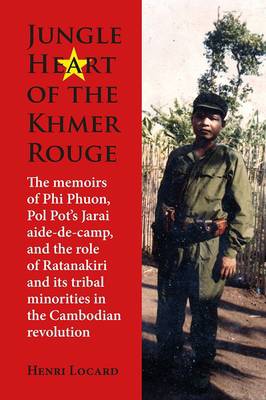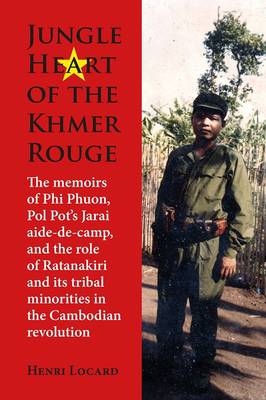
Bedankt voor het vertrouwen het afgelopen jaar! Om jou te bedanken bieden we GRATIS verzending (in België) aan op alles gedurende de hele maand januari.
- Afhalen na 1 uur in een winkel met voorraad
- In januari gratis thuislevering in België
- Ruim aanbod met 7 miljoen producten
Bedankt voor het vertrouwen het afgelopen jaar! Om jou te bedanken bieden we GRATIS verzending (in België) aan op alles gedurende de hele maand januari.
- Afhalen na 1 uur in een winkel met voorraad
- In januari gratis thuislevering in België
- Ruim aanbod met 7 miljoen producten
Zoeken
Jungle Heart of the Khmer Rouge
The Memoirs of Phi Phuon, Pol Pot's Jarai Aide-De-Camp, and the Role of Ratanakiri and Its Tribal Minorities in the Cambodian Revolution
Henri Locard
€ 44,45
+ 88 punten
Omschrijving
The Khmer Rouge rise to power in 1975 gave birth to a terrifying new order marked by killings, forced ruralization and total collectivization. Up to two million people died as a result. The memoir of Phi Phuon, Pol Pot's aide-de-camp/bodyguard - compiled and translated by Henri Locard with introduction, annotations, and background history and analysis - offers important new perspectives on the period. Though a relatively minor actor, Phi Phuon worked closely with the Khmer Rouge leadership. His quite candid account describes how an enterprising and idealistic young man was drawn to a revolutionary cause whose leadership he saw as patriotic, visionary and even charismatic. Moreover, Phi Phuon was Jarai, from one of the borderland hill tribes despised by many Khmer. Here, in the jungles of Ratanakiri Province as war in Vietnam raged nearby, Pol Pot and his urban, intellectual comrades mobilized the ethnic minorities into a revolutionary army. Inspired by idealized perceptions of hill-tribe lifestyles, the Khmer Rouge also developed radical plans for a civilizational blank slate that were implemented when they came to power. Shedding light on events not fully revealed before, this is a significant contribution to the study of recent Cambodian history.
Specificaties
Betrokkenen
- Auteur(s):
- Uitgeverij:
Inhoud
- Aantal bladzijden:
- 368
- Taal:
- Engels
- Reeks:
Eigenschappen
- Productcode (EAN):
- 9788776943257
- Verschijningsdatum:
- 1/08/2023
- Uitvoering:
- Paperback
- Formaat:
- Trade paperback (VS)
- Afmetingen:
- 152 mm x 226 mm
- Gewicht:
- 589 g

Alleen bij Standaard Boekhandel
+ 88 punten op je klantenkaart van Standaard Boekhandel
Beoordelingen
We publiceren alleen reviews die voldoen aan de voorwaarden voor reviews. Bekijk onze voorwaarden voor reviews.









